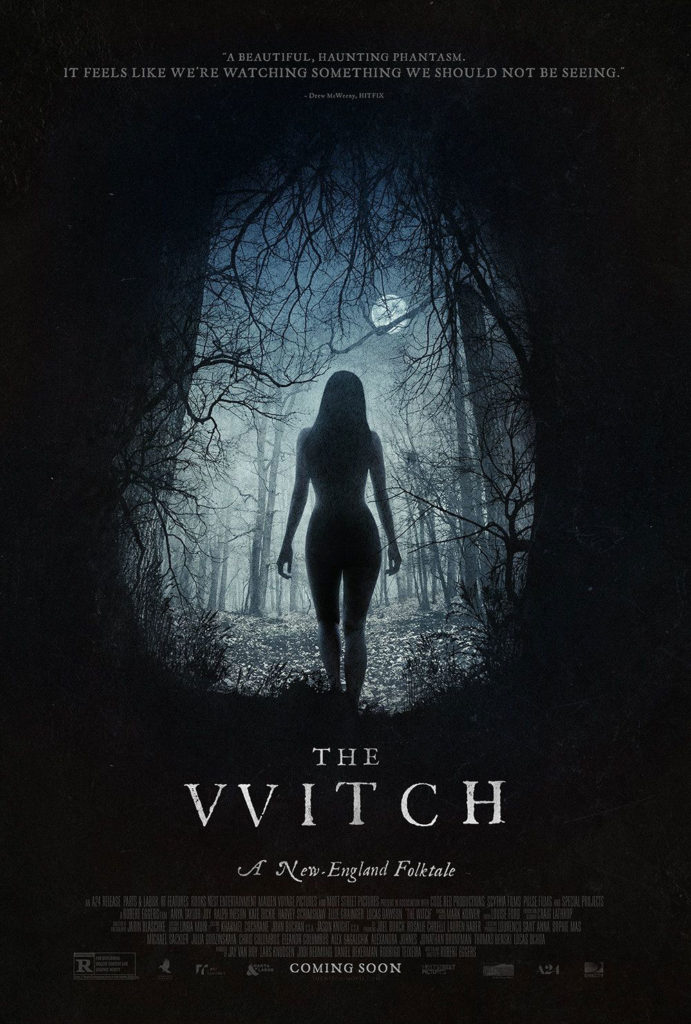The Witch, the 2015 film from first-time writer/director Robert Eggers, floored film aristocracy when it premiered at Sundance. And for good reason. The Witch is an incredible film — far above what viewers should normally expect from a filmmaker’s first feature.
The Witch takes place in early colonial New England. A family, led by patriarch William (Ralph Ineson), is banished from a fortified community for preaching a version of Christianity so dogmatic that even the pilgrims, not known for their religious liberalism, can’t handle it. William practices the kind of Christianity where all people, regardless of what they have done or believe, are sinners and are at the mercy of the lord. Worship, confession, and complete devotion of a person’s life to God are no guarantee of His favor. It is a gospel of fear and paranoia, and is instrumental in how events in the film play out.
William takes his family — wife Katherine (Kate Dickie), oldest daughter Thomasin (Anya Taylor-Joy), oldest son Caleb (Harvey Scrimshaw), fraternal twins Mercy and Jonas (Ellie Grainger and Lucas Dawson), and an infant son — out into the American wilderness to homestead far from the sins of the plantation. They build a home along the edge of a creepy forest, and this turns out to be the biggest mistake they could have made.
The forest is a primeval place, and does much to evoke thoughts of mystery and death in an audience, when used properly. By that, I mean that many films, both horror and otherwise, use remote locations like a forest as a prop, or an excuse to isolate characters  and lessen the demands on the filmmakers. It’s such a familiar trope, especially in horror, that dozens of films I’ve reviewed for the Horrorshow use variations on the theme, and there are countless others out there that I haven’t written about. But there’s nothing clichéd about how Eggers treats the wilderness, or the isolation of William and his family. Rather, what Eggers does is turn a trope into an essential story element.
and lessen the demands on the filmmakers. It’s such a familiar trope, especially in horror, that dozens of films I’ve reviewed for the Horrorshow use variations on the theme, and there are countless others out there that I haven’t written about. But there’s nothing clichéd about how Eggers treats the wilderness, or the isolation of William and his family. Rather, what Eggers does is turn a trope into an essential story element.
The Witch is somewhat of an experiment in storytelling, in that way. At its heart, the story is as old as colonial America. Before the end credits, a disclaimer is displayed on the screen. It reads, “This film was inspired by many folktales, fairytales and written accounts of historical witchcraft, including journals, diaries and court records.” The film’s portrayal of witchcraft, and hysterical accusations thereof, are familiar to anyone who has read The Crucible. But whereas we viewers can look back on the past as a time of ignorance and superstition, Eggers presents witches as a real menace that plagued Christian society.
Not long after the family harvests their first meager crop, the infant goes missing, and viewers see for the first time that the dread that pervades the film has reason. There is a witch in the forest, and she has targeted these interlopers for her curses. The misfortunes continue to grow for the family, made worse by their humbleness before the lord. They believe they are being punished for unknown transgressions. They feel they are losing grace. For those as devout as the characters in these films, the loss of grace fosters existential terror — which William and his family perceive as a greater threat than the witch — that can lead to very poor decisions, and such comes to pass in the final act.
As far as I can tell, Eggers was very faithful to the period. The language is arcane, and the farm set is well-realized. He also got everything he could out of the cast. The main character in this film is not William, but rather Thomasin. Taylor-Joy was tasked with carrying the film; a vehicle for the audience’s senses of confusion, fear, injustice, etc. She is the bridge from fundamentalist mores to modern sensibilities, but don’t think she is an anachronism. Thomasin belongs to the 1600s just as much as the rest of her family. But she is just about the only one of them I could muster sympathy for.
The standout performance, for me, belongs to Ellie Grainger as young Mercy. That child was an absolute terror. Spoiled and manipulative, there was a maturity in her performance akin to Kirsten Dunst in Interview with the Vampire or David Dorfman in The Ring. If there weren’t a witch in the woods, Mercy would be the most disturbing part of this film.
The Witch isn’t an easy watch, and that’s not because it’s ponderous or artsy. Eggers wraps his characters in so much dread that I just wanted it to stop. I wanted there to be some light, some sign that everyone would overcome the peril caused by the witch. But, she knew what she was doing. And so did Eggers.
